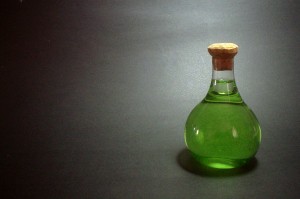 Love and death are often closely related in English culture, from classic plays like Romeo and Juliet to modern romantic comedies like Four Weddings and Funeral. We even use the expression ‘to love someone / something to death‘ to talk about loving someone or something very much. That’s why I was interested to see this article on the Reuters website which combines the two quite well. I have mentioned before that I find archaeology interesting and I was a little surprised to see that people were actually taking stone from the site home with them but I guess a lot of people will try anything to improve their love lives.
Love and death are often closely related in English culture, from classic plays like Romeo and Juliet to modern romantic comedies like Four Weddings and Funeral. We even use the expression ‘to love someone / something to death‘ to talk about loving someone or something very much. That’s why I was interested to see this article on the Reuters website which combines the two quite well. I have mentioned before that I find archaeology interesting and I was a little surprised to see that people were actually taking stone from the site home with them but I guess a lot of people will try anything to improve their love lives.
There were a lot of interesting words and phrases in this article, too. The first paragraph contains two interesting pieces of vocabulary:
Unhappy lovers in Cyprus have been taking so much stone from the tomb of Saint Agapitikos to use in love potions that soon there won’t be anything left.
A ‘tomb‘ is a room where a dead person is buried. If someone is buried in the ground in a coffin rather than a ‘tomb‘, we would call the place he or she is buried a ‘grave‘.
A ‘potion‘ is a liquid with magical or healing properties so a ‘love potion‘ would be a kind of magical drink to give to a person so that he or she will fall in love with you. Another word related to love we often use is ‘aphrodisiac‘ meaning something, often some kind of food or drink, that puts people in the mood for love. The difference between a ‘love potion‘ and an ‘aphrodisiac‘ is that a ‘love potion‘ would make someone fall in love with a specific person whereas an ‘aphrodisiac‘ would just make a person feel in the mood for love in general.
There is another interesting word in the next paragraph where the author mentions that these potions are used by ‘the lovelorn‘. A person is said to be ‘lovelorn‘ if he or she loves someone who doesn’t love him or her in return. We sometimes call this situation ‘unrequited love‘.
In this paragraph, the author also uses a French phrase ‘objet d’amour‘ to talk about the person who the potion will be given to. It’s fairly common to use this expression in English however it is probably more common to use the English expression ‘the object of your affection‘ where the ‘object’ is the person you are in love with.
There’s a great piece of expressive vocabulary in the next paragraph, too where the author says:
But in recent years so many have been filching shards of stone that a quarter of the tomb has disappeared.
In this example ‘filch‘ means to steal and a ‘shard‘ is a broken piece of rock. A ‘shard‘ can be a broken piece of any hard material, usually with sharp edges but it is most commonly used to talk about a piece of broken glass.
In the fifth paragraph, it is mentioned that people are ‘flocking‘ to the tomb. ‘Flock‘ is the collective noun for a group of sheep so it is easy to imagine people ‘flocking‘ to the tomb arriving in large numbers following each other like sheep.
The penultimate paragraph has two more interesting words in it. The first is ‘antiquities‘ meaning things which are important because of their age and the next is ‘hermit‘. A ‘hermit’ is a person who likes to live alone and away from other people. They tend to have very few possessions and often choose a solitary life for religious reasons. There is also a kind of crab called a ‘hermit crab‘ which uses shells left by other sea creatures to protect its body.
Are there any places that are lucky for lovers in your country?
Today’s photo is by Alexandre Jaeger Vendruscolo.